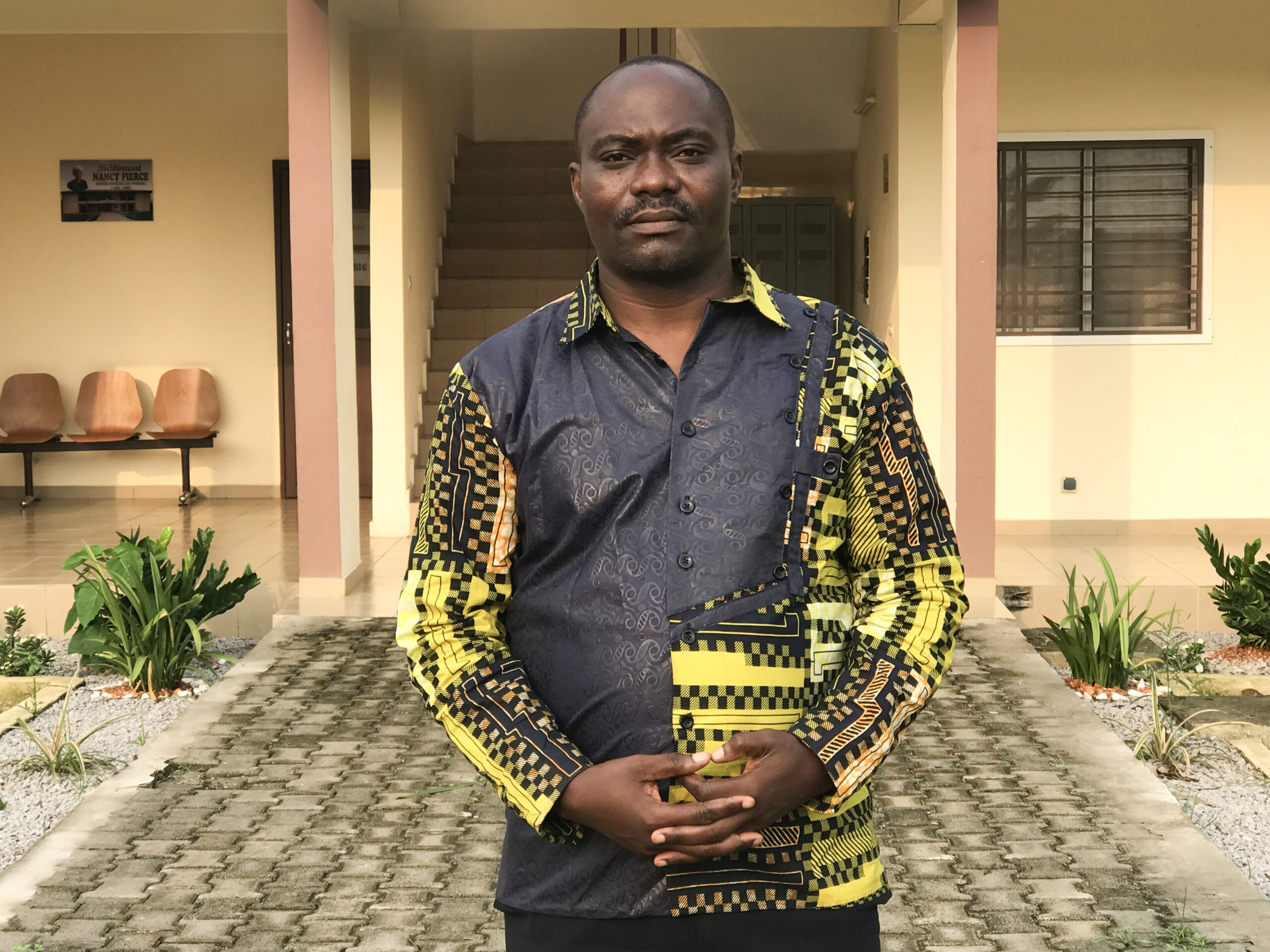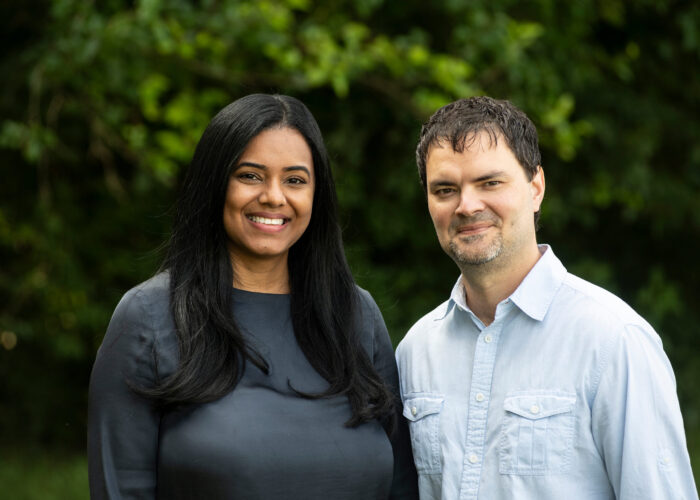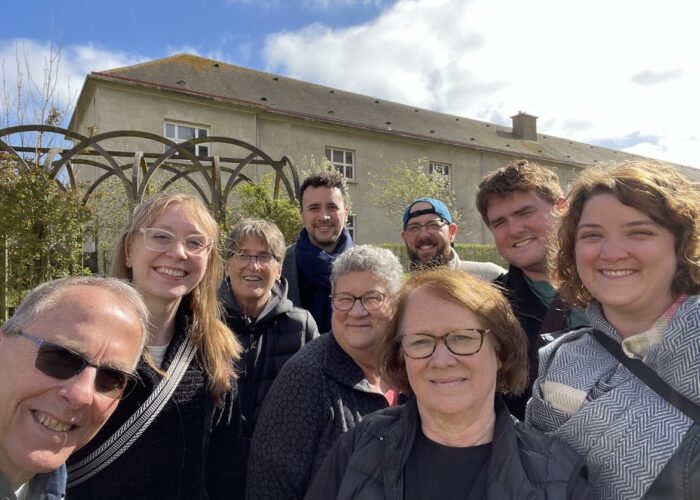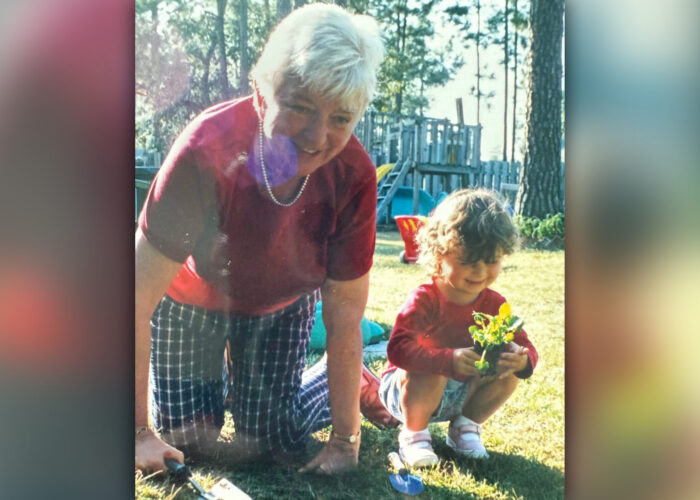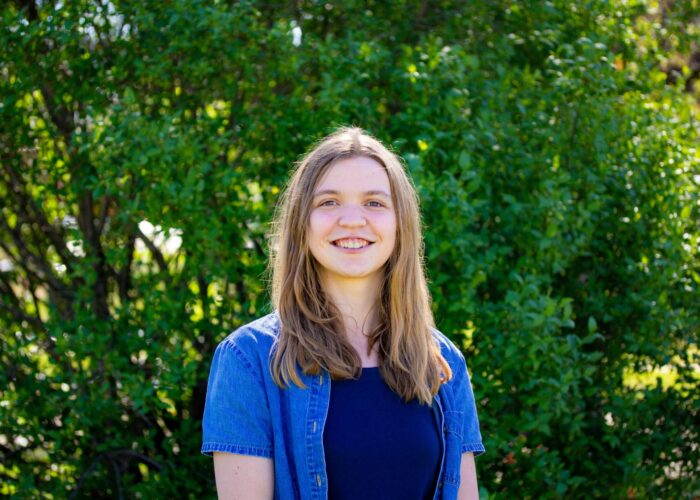Mennonite Mission Network, along with many partners in Africa, Europe and North America, helped conceive Le Centre Formation à la Justice et à la Paix (CFJP, Justice and Peace Training Center) and has invested in nurturing this partnership. Fifteen theological schools and institutions have launched an accredited master’s degree in conflict transformation for the French-speaking world. The degree program is offered mostly online and is informed by Anabaptist theology. One of the students, Nathan Mudiji Makumbi, describes how he plans to use his training to dismantle ancient ethnic tensions between the Bantu and Batwa peoples of the Democratic Republic of Congo.
I enrolled in Le Centre Formation à la Justice et à la Paix (CFJP, Justice and Peace Training Center) master’s in conflict transformation program, to equip myself to better serve God. I also want to learn to help my Batwa (an Indigenous people group) brothers and sisters, who are considered less than human by the dominant Bantu people groups in the Democratic Republic of Congo (DRC).
[Editor’s note: The Batwa people were Indigenous hunter-gathers in much of central Africa. The Bantu people began to migrate into the area in about 4000 B.C.E. and gradually displaced the Batwa people to the edges of their settlements.]
CFJP’s degree in conflict transformation helps to sharpen my understanding of evangelization and helps me better understand how to exercise my roles and responsibilities in my dual identity as a Congolese citizen and celestial citizen. Through this program, I am gaining skills that strengthen the work to which I am called, the reconciliation between the Bantu and Batwa peoples.
Analysis of Bantu/Batwa tensions
Today, the Batwa people have been pushed into Equateur and Mayi Ndombe provinces, in the northern and eastern parts of the country, respectively.
In working with this people group, I want to address several questions:
- Why are the Batwa people being exploited and considered sub-human by the Bantu people?
- Why do Indigenous peoples suffer mass expropriation, expulsion and subjugation by invaders?
- Why are they excluded from social life?
- Why are they denied human rights?
- How do government policies negatively impact Batwa life?
- What impact has the 30+ years of armed conflicts had on Batwa society?
- What needs to be done to ensure that Bantu and Batwa people can live in peace and benefit from natural resources in an equitable way?
Some examples of how the Bantu people have mistreated the Batwa people are:
- A Batwa woman died in a hospital where she went to give birth, because the Bantu doctors did not want to assist her.
- A Batwa girl was expelled from school, because she was smarter than the Bantu students. Her intelligence was considered an insult to the Bantu students.
- In the churches led by Bantu leaders, Batwa worshippers have to wait to enter until the Bantu worshippers have been seated, and they must leave the service first, to clear the way for the Bantu worshippers. The Batwa people are not allowed to defile the benches that the Bantu people use, so they must sit on the ground.
- Most of the churches in Kiri region [in the Mai Ndombe Province] do not pay attention to the needs of the Batwa people. Even Bantu church leaders think that the Batwa people are only good for field work and other menial jobs. Many times, the Bantu people will beat the Batwa workers, instead of paying them.
How can the church transform the conflict between these two Congolese communities?
I am called to lead the church in reversing the exploitation and dehumanization of the Batwa people in the Kiri region. At the beginning of 2024, as a first step, the Communauté des Églises de Frères Mennonites au Congo (Mennonite Brethren Church of Congo) initiated an organization called Espace Conviviaux pour la Paix (ECP, Convivial Space for Peace, or Friendship Peace Center), which helps Bantu and Batwa of all ages learn to desire and actively work for one another’s well-being. We, as Mennonites, teach that all people are shaped in the image and likeness of the same God, and that as we live together in harmony, we flourish.
ECP shares God’s vision for peace
Life is difficult for many people, whether they are Bantu or Batwa, Black or White, female or male, old or young. They may have family problems, be unemployed, experience financial difficulties, have poor health or lack land, which leads to food insufficiency. They may have lost loved ones, live in fear of abuse or violence, or have lost their homes after conflict, disaster or famine. Any of these things could happen in the lives of both Bantu and Batwa people.
Whatever our difficulties, God has a perfect plan for peace, both for Bantu and Batwa people. In Isaiah 65 and Revelation 21 God reveals a new earth and new heavens, in which Jesus Christ will live, as king of shalom, with his people composed of Bantu, Batwa, Black and White racial groups. God will comfort the unfortunate people of all races, and there will be no mourning or pain for anyone. In this new world, there will be no place for people who discriminate against others.
We also understand that God, who does not discriminate, requires that everyone, both Bantu and Batwa people, must acknowledge their sin, realize their separation from God and do their best to repair the relationships that have been broken because of sin. God cares about the salvation of everyone, and the church of Christ must, therefore, carry out the missio Dei (mission of God) to find lost Bantu and Batwa daughters and sons.
We testify that God’s vision for the Bantu and Batwa peoples is ECP’s vision of peace for the DRC and the world.
Conflict transformation training and other skills
In addition to promoting listening skills and conflict transformation training, ECP will:
- Facilitate intergenerational dialogue.
- Train both Bantu and Batwayouth in income-generating activities.
- Provide a play area for children.
Encouraging Bantu and Batwa children to experience life together from a young age is a big step in breaking down centuries-old barriers and prejudices. We hope that, someday, we will be able to create centers and share this message of justice, peace and a better life for all, based on Anabaptist-Mennonite convictions, throughout all of DRC and the entire African continent.

![IMG_20220904_134806_861[1]a Nathan Mudiji Makumbi, standing center right with clerical collar, gathers with the Kiri Centre Mennonite Brethren congregation in the Democratic Republic of Congo after a worship service. Photographer: Glodie Kihita.](https://www.mennonitemission.net/wp-content/uploads/elementor/thumbs/IMG_20220904_134806_8611a-scaled-r00cvil6lbauk4dnjvdqlkpdct6wscp7h06ku1wd4g.jpg)
